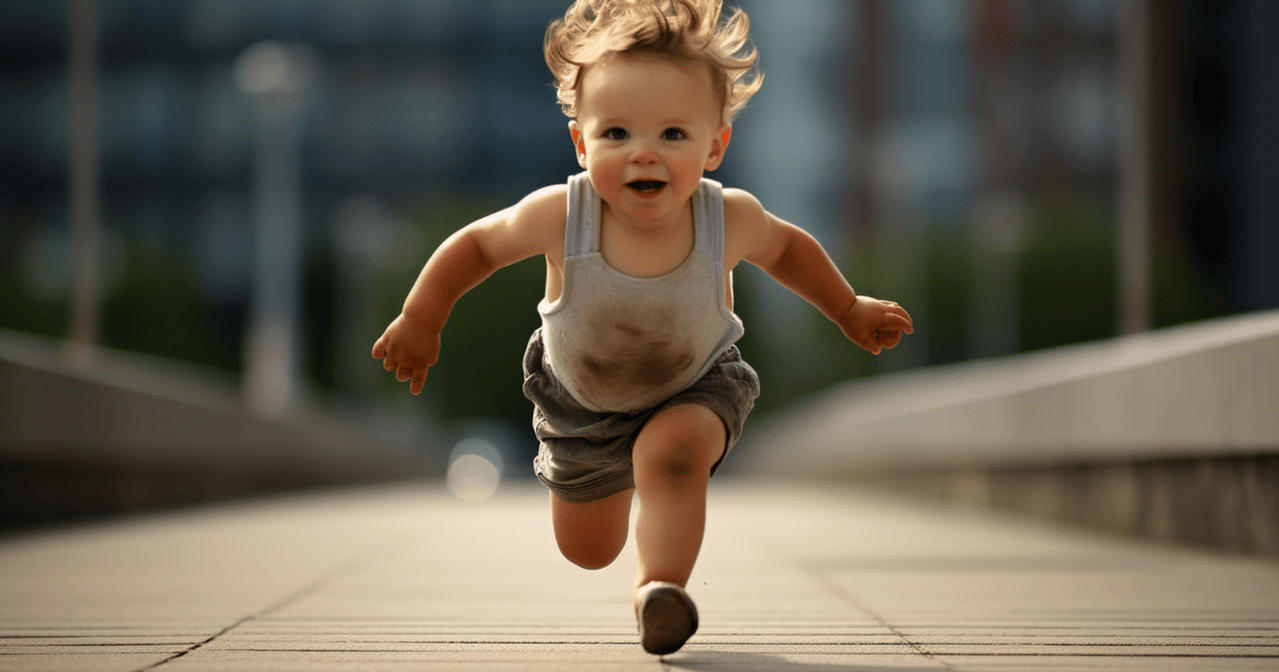Every new mom wonders about the right time to adorn those tiny feet with their first pair of shoes.
Is it just about the adorable Instagram photos, or is there more to it?
Dive into this comprehensive guide to discover the secrets of baby footwear.
When exactly do babies need shoes?
Babies should ideally wear shoes once they start walking outdoors, ensuring protection without hindering natural foot development. Shoes before walking primarily serve warmth and style.
Do babies really need shoes?
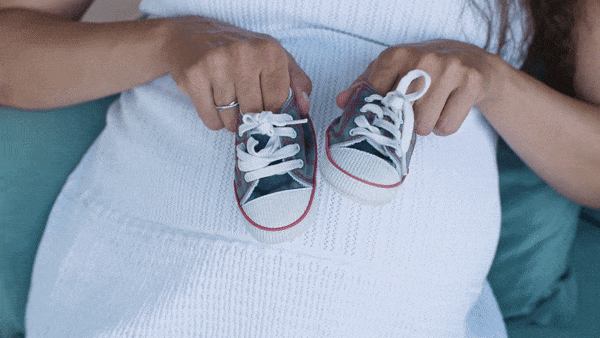
Before the internet and baby fashion trends, our ancestors might not have bothered with baby shoes at all.
Tiny feet were often left bare or wrapped in soft cloth.
The Evolution of Baby Footwear
Back in the days, baby footwear was more about protection from cold rather than fashion or walking support.
Historical records and old paintings suggest that many children went barefoot, especially during the warmer months.
It was only during the cold that they wore soft, cloth wrappings or leather moccasins, especially in Native American cultures.
Common Misconceptions about Babies and Shoes
Shoes Help Babies Walk Faster: Many believe that shoes might aid babies in walking quicker. However, experts suggest that walking is a developmental milestone not necessarily aided by footwear.
Barefoot is Unhygienic: Some think walking barefoot might expose children to germs. Yet, a bit of exposure can actually strengthen the immune system.
When is the right time for babies to wear shoes?
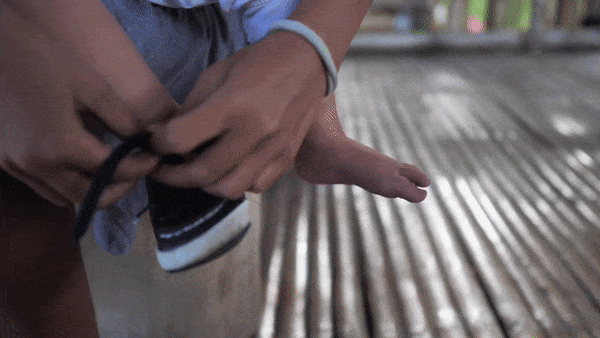
Watching a baby take their first steps is exciting, but it also brings up the important question of footwear.
Developmental Milestones Related to Walking
Each baby is unique; some might start walking as early as 9 months, while others might take their time till 18 months.
According to the American Academy of Pediatrics, shoes become essential when babies walk outdoors.
Signs Your Baby May Be Ready for Shoes
Stability in Steps: If your baby moves with confidence and fewer tumbles, it might be time.
Outdoor Exploration: When your little one shows interest in the outside world, protecting their feet becomes essential.
Why might shoes be harmful for babies?
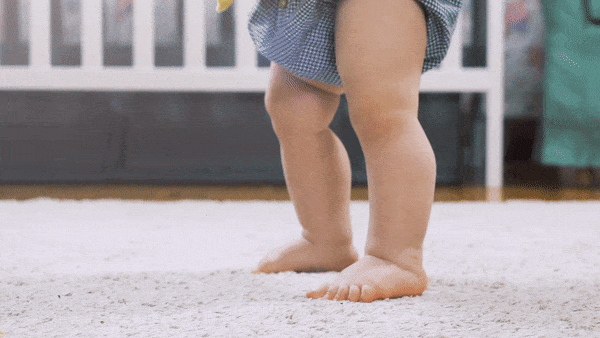
Contrary to popular belief, shoes aren't always beneficial.
How Shoes Can Affect Foot Development
Babies have soft, pliable feet. Hard-soled shoes can restrict movement, hampering the natural growth process.
Going barefoot or wearing soft-soled shoes allows toes to grip and muscles to develop properly.
The Risk of Ill-Fitting Shoes
Tight shoes can hinder growth and cause discomfort. Ensure a thumb's width between the toe and shoe tip.
Regularly checking the fit, especially during growth spurts, is crucial.
Why is walking barefoot beneficial for babies?
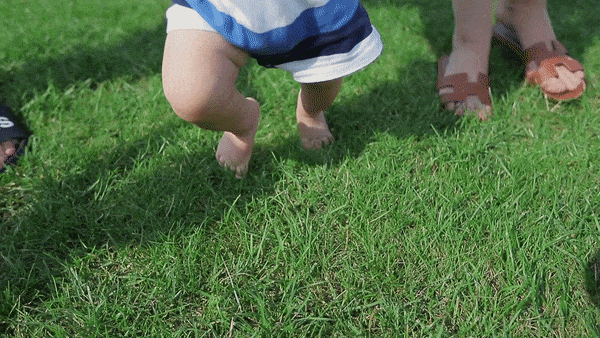
Walking barefoot might seem unconventional for some parents, but it has numerous advantages for little ones.
Strengthening and Flexibility Benefits
Muscle Development: Barefoot walking allows the muscles in a baby's foot to strengthen.
Natural Grip: Toes can grip the ground, aiding balance and coordination.
Flexibility: Bare feet can move freely, leading to better foot flexibility.
Sensory Development and Ground Feedback
Connection with Surroundings: Walking without shoes helps babies connect with their surroundings.
Enhanced Sensory Feedback: Feeling various textures (grass, carpet, sand) stimulates sensory development.
Natural Learning: Every step teaches them about their environment, promoting cognitive growth.
What type of shoes are best for babies?
While going barefoot is great, the right shoe can be beneficial when needed.
Features of a Good Baby Shoe
Soft Soles: For flexibility and natural foot movement.
Non-slip Bottoms: Safety first! Look for anti-slip soles.
Breathable Material: Materials like soft leather or canvas are ideal.
Wide Toe Box: Allows room for toes to spread and grip.
Popular Baby Shoe Brands and Recommendations
Stride Rite: Renowned for ergonomic designs.
Robeez: Known for soft-soled shoes, mimicking a barefoot feel.
PediPed: Combines comfort with style.
What should parents consider when buying baby shoes?
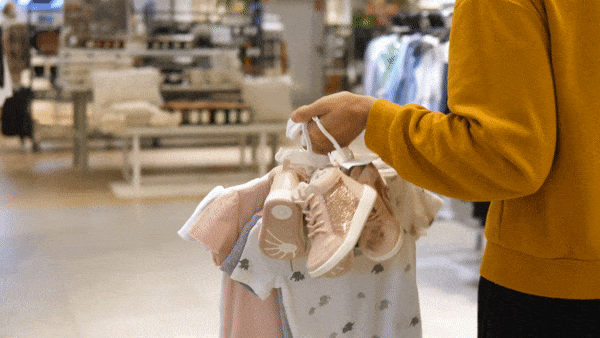
Choosing the right shoe for your baby can be daunting, but with the right knowledge, it becomes a breeze.
Measuring Baby's Foot Size Correctly
Foot Growth: Babies' feet grow quickly, so regular measurements are crucial.
Two-Thumb Rule: Ensure there's a thumb's width of space at the front and back of the shoe.
Material and Design Considerations
Natural Materials: Look for shoes made of breathable, natural materials.
Easy to Put On: Wide openings and adjustable straps or laces are a must.
Avoid Heels: Flat shoes mimic the natural position of a child's foot.
Remember, while shoes are essential at times, letting those tiny toes roam free is beneficial. As always, it's about balance and ensuring your baby's comfort and health.
Conclusion
Every baby's journey is unique, and so is their introduction to the world of shoes.
While those tiny shoes can be irresistibly adorable, their primary role isn't just about fashion.
It's about ensuring our little ones' feet develop naturally and healthily.
Here are the key takeaways from our discussion:
Natural Development: Letting babies go barefoot indoors aids their foot muscles to grow and provides sensory feedback.
The Right Time: Shoes become vital when your baby starts exploring the great outdoors. Before that, shoes are more for protection against the cold or for stylish family photos.
Choose Wisely: The type of shoe matters. Soft-soles are ideal for those initial steps, allowing feet to move freely. Remember to look for shoes that are breathable, flexible, and easy to put on.
Fit Matters: Always ensure a comfortable fit. Babies grow fast, so regular checks are essential to avoid cramped toes and hindered growth.
In essence, while shoes are a rite of passage for our little adventurers, letting them feel the ground, experience textures, and develop strength in their feet is equally crucial.
So, whether it's their first step in your living room or their first adventure in the park, ensure those tiny feet are well taken care of, either by nature's design or with a pair of well-fitted shoes.
FAQ
How often should I replace my baby's shoes?
As babies grow rapidly, it's common to replace shoes every few months. Regularly check for signs like tightness or worn-out soles, and replace when needed to ensure comfort and proper support.
Can I buy used baby shoes?
While budget-friendly, used shoes may have molded to the original wearer's feet. If considering second-hand shoes, ensure they are in good condition, with a flexible sole and no signs of heavy wear.
How can I ensure my baby's feet stay healthy?
Let your baby go barefoot indoors to strengthen foot muscles. When wearing shoes, ensure they're dry and clean inside. Regularly inspect your baby’s feet for any signs of blisters, redness, or other issues.
Are there specific materials I should look for in baby shoes?
Yes, opt for breathable materials like leather or canvas to prevent sweaty feet. Avoid synthetic materials as they can cause the feet to sweat more and potentially lead to fungal infections.
How do I care for and clean baby shoes?
Regularly air out shoes and check for small objects or rough spots inside. For cleaning, follow the manufacturer’s instructions. Generally, wiping with a damp cloth and air drying works for most baby shoes. Avoid machine washing unless specified.

